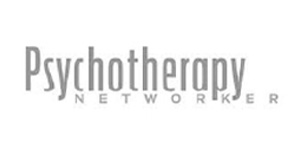Learn How to Work With Divorce Ambivalent Clients
If you love working with "tough couples," where one is leaning in and another leaning out of the marriage, Discernment Counseling can be a transformational experience for you and your couples.
More than 1604 professionals have been through our training. Our directory features only the most engaged, ready-to-serve Discernment Counselors.
Who are the couples best served with Discernment Counseling?
You have one spouse who is ambivalent about staying married/in the relationship as they’re considering divorce. They haven’t yet fully decided but they’re leaning out.
The other spouse is what we call the leaning-in spouse, and they are interested in doing therapy.
If one spouse is not sure they want to stay married AND doubts that couples therapy can help, then Discernment Counseling is exactly where the couple belongs. The leaning-out partner is supported where they are emotionally, and the leaning-in spouse is equally supported in their own emotional state. Discernment Counseling avoids starting half-hearted couples therapy with these mixed-agenda couples. It accepts ambivalence rather than trying to work around it or overcome it.
This free 3-part video training will show you:

HEATHER GUTTORMSON, MS, LMFT
"I just want to share how awesome this training and work has been for me and how fun it has been to be able to effectively reach a group of individuals I really struggled with in the past."
"Although couples go down different paths, it certainly has been an effective process. Also, offering this service is the best marketing strategy! I reach a specific group of people in my area that no one else is reaching. It is the single best marketing decision I have made. I have couples call every day asking for this service. Lastly, it has made me giddy and inspired about working with couples again! I feel like I’m in grad school all over again!"
Discernment Counseling in a Nutshell
The initial commitment for the couple is simply the first 2-hour session. During this session, each person decides separately if they would like one more session, up to a maximum of five. The goals are clarity and confidence in a direction for the marriage, based on a deeper understanding of what has happened to the marriage and each person's contributions to the problems.*
The outcomes are framed in terms of three paths:
The sessions are carefully designed to take each partner where they are, with an emphasis on individual conversations and carefully structured couple sharing. The sessions do not look like traditional couples therapy. There is a big emphasis on what each partner can learn about self from the problems that have befallen the marriage.
* This is not couples therapy as you are not aiming to help people solve problems together, learn to communicate better, or get closer together.




